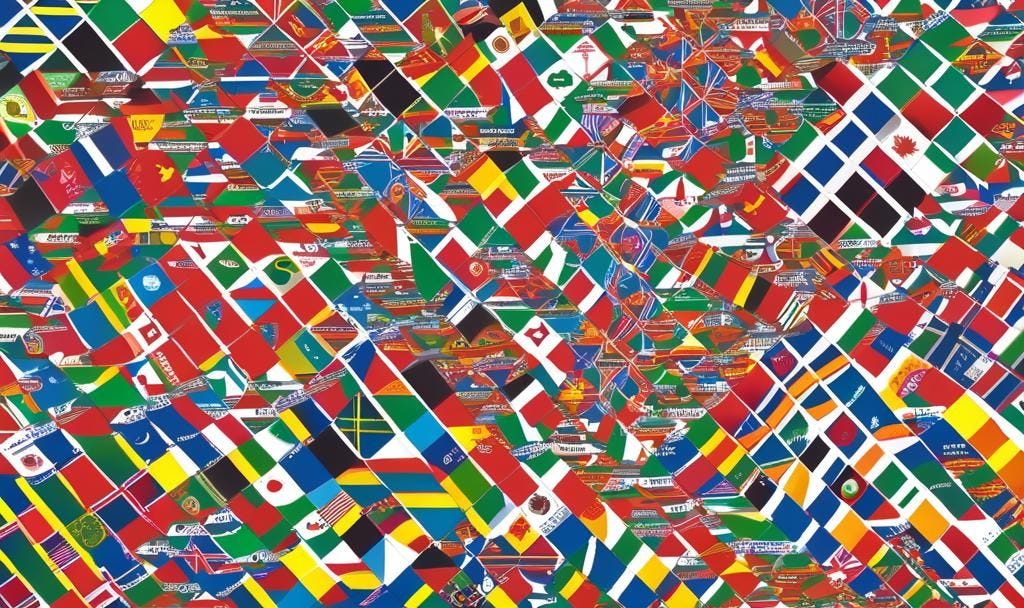In 2024, there were two things that captured my interests, besides building towards Trustable AI. They are language and maps! How so?
Let’s do a quick discussion on why I am fascinated by languages.
Language
Language's primary purpose is to communicate, both its meaning and the associated context. For instance, “a boat parked” vs “a cruise ship docked” paints a different picture altogether. The best kind of language will be where the exact picture that was encoded by language gets decoded without loss of information i.e. the exact picture gets painted in the target.
However, this is not likely to be true, else we would not need courts and lawyers.
S,o what is so fascinating about languages? There are two parts to it.
Development of languages
Many will know there are four areas that one needs to be fluent in to at least be fluent in a language. They are speech & listening (comprehension) and reading & writing.
I was very fortunate to speak to a polyglot during the Language Summit I attended in Bangkok last August. There were many fascinating factoids that he shared with me with regards to speech, like for instance how the tongue moves and where the sounds are made, from the throat, tip, and back of the tongue, or cheeks. Where the sounds are made will determine how words are spoken, how the sentence is structured, the possible tones that come with it, etc. Not forgetting that it can be deciphered and comprehended quickly during speech i.e., listening & comprehension.
This is followed by the building blocks of language that matter the most in writing. Most written languages can fall into two categories, symbolic vs alphabets. Languages such as Korean, Arabic, and Chinese are made up of symbols, and languages such as French, Bahasa Indo & Malay are made up of alphabets. If it’s symbolic, reading can be an issue because each symbol is unique (even if it’s a combination of small symbols, such as Korean). If it’s the alphabet, reading can be easier in terms of pronunciation as long as your First Language is English, but then it does not mean that your pronunciation is close to perfection. (I always get reminded that flour and flower have the same pronunciation).
Evolution past to present
Languages encapsulate past history and culture of the civilization that uses them. How so? Just by looking at the words that are created, do they have many words for a single spectrum? For instance, a civilization that has many positive words to describe different levels of happiness goes to show how much they cared about expressing their happiness. Or they have many unique words to describe the different tomatoes, it’s a good chance that tomatoes might have figured a lot in their diet for there to be a large vocabulary on it. If the civilization cares a lot about gender differences, then there can be a set of particles that is used by one gender.
Another interesting phenomenon is that as the civilisation innovates and improved, meet with other civilizations, words might be “borrowed” over and “misspelled” slightly. Appropriation complete! This happens as the different civilisations improves with their own technology and invention and they are shared with other civilisations/nations. One word comes to mind is “computer” in English and “komputer” in Bahasa Melayu.
Such an appropriation process can be quite interesting to read up on. For instance, I recently realised that the Chinese language borrowed a lot of words from the Japanese Language. For example, Japanese having the Kanji character system, was the first to translate Economics to “經濟”.
As civilisation and technology improves and culture gets updated, new words are coined and added to the vocabulary of the different languages.
Is it not fascinating? :)
So I for one will continue to learn the different languages and dialects out there so that I can learn as much as possible about the rich history and culture of the civilizations, how and when they met with each other, and many more!
The next language I am picking up is Japanese, which I am sweating already lol, given that it has 3 character systems - Hiragana, Katakana & Kanji. Followed by German and Russian…then start reading books written in these languages. :)
Do any linguists, computational linguists, or NLP researchers care to share more? Any thoughts are very much welcome! :)
Thank you very much for reading till here on my excitement with languages. I will share more about maps in another issue.
Do support my newsletter by liking, sharing, and subscribing to it if you have not done so! To assist in my knowledge acquisition journey, consider making a donation at my BuyMeACoffee page! :)







